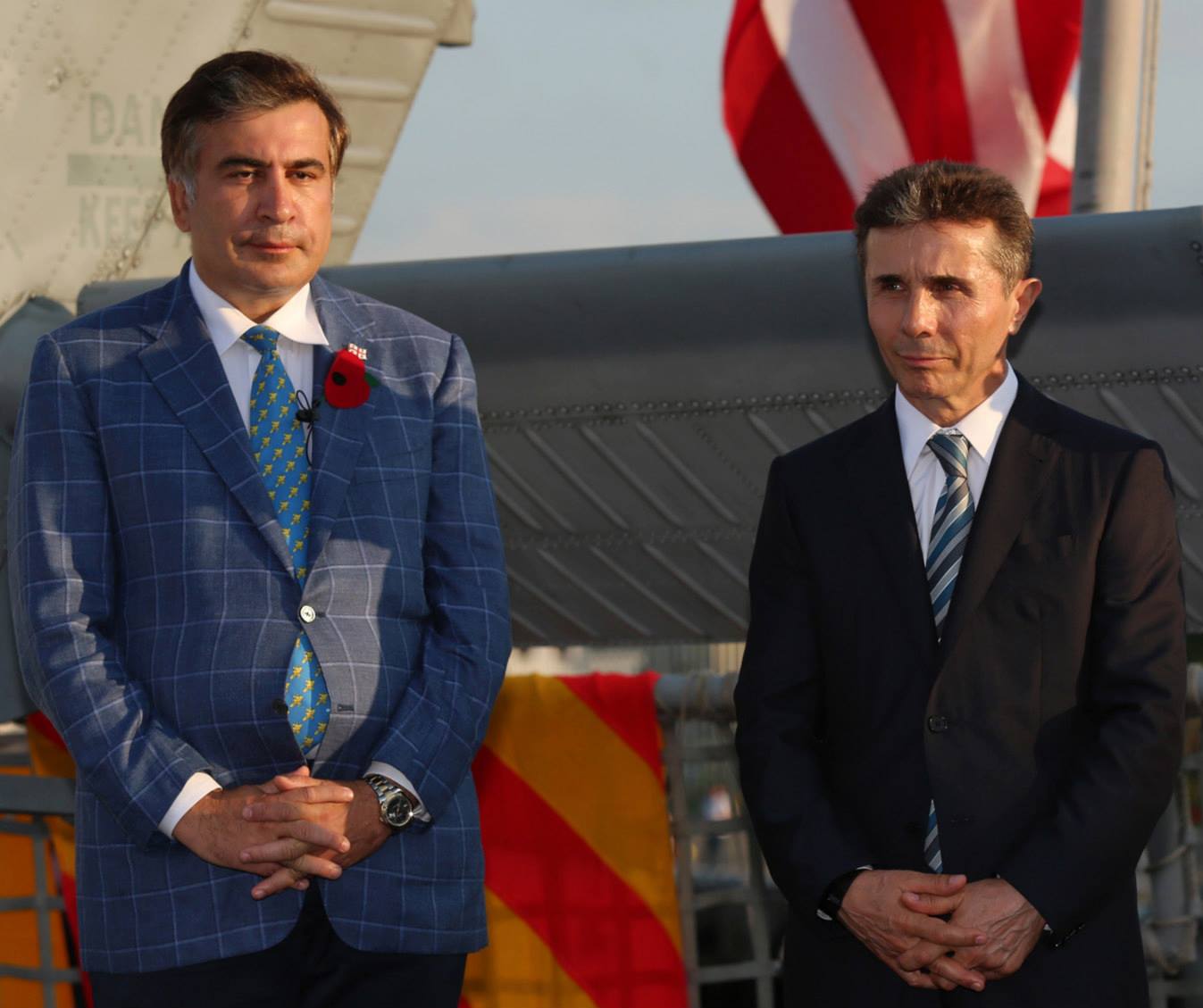
TBILISI, DFWatch–Georgia will change from a presidential republic into a parliamentary one after the election on October 27. We give you the details.
The new president will start fulfilling his duties as soon as he has been sworn in, and after this ceremony, the previous president will have his authority suspended.
By decision of President Mikheil Saakashvili, which was expressed in the constitutional amendments of 2010, the authority of the president will be reduced and the prime minister will have increased powers.
When these amendments were passed three years ago, it was assumed that since Saakashvili would have served out his second presidential term by the time they came into force, the decision to shift power from president to prime minister indicated that he was planning to assume the post of prime minister, often called a ‘Putin scenario’. Saakashvili often said that he wasn’t planning to leave politics.
But the situation changed when his competitor Bidzina Ivanishvili went into politics. His Georgian Dream coalition won the parliamentary election in 2012, and the billionaire Ivanishvili became prime minister.
The new government is already working on new set of constitutional amendments in order to reduce the powers of the prime minister, before the constitutional amendments of 2010 come into force. The coalition plans to adopt the amendment before the presidential election, and after the election it plans to start a more thorough constitutional reform.
In its current version, the constitution says that the president is head of state. He manages and implements the domestic and foreign policy of the country; ensures the unity and integrity of the country, and the activity of government bodies. The president is the highest representative of Georgia in foreign affairs.
With the amendments which were passed in 2010 by the former ruling party, the National Movement, and which will come into force after this presidential election, all these presidential powers will be reduced. He will no longer intervene in domestic policy and there is no term ‘highest’ in these amendments, which means that he will no longer manage or implement domestic and foreign policy, though he will remain as Georgia’s representative in foreign affairs.
The president will no longer have the right to appoint prime minister or government members. He will retain this right though during a political crisis when parliament no longer decides to dismiss the prime minister, which is a complicated procedure and is almost impossible to implement.
Law enforcement ministers will no longer answer to the president, and he will not have any role in preparing or adopting state budgets.
It used to be the president’s discretion to handle relations with the regions, and appoint and dismiss governors, but from now on he will need agreement from the prime minister for that. He will also need agreement from the government in order to present candidates for head of the Central Election Commission or members of the Communication’s Commission.
In addition, even though the president will remain commander in chief, he won’t have the right to independently form a joint military staff. He will need the agreement of the prime minister. The president won’t have the right to appoint members of the Security Council on his own.
The only powers which will remain unchanged are the president’s powers during war, which means that in case of an armed attack on Georgia, the president announces a state of war, in case of appropriate conditions signs an armistice, and no later than after 48 hours he sends these decisions to parliament for confirmation. The same powers will remain in case of massive disorder, violation of the country’s territorial integrity, military coup, armed riot, ecological catastrophy or epidemic or any other situation in which government bodies are unable to fulfill their duties as described by the constitution.
The president will still have the power to appoint Election Day, and also set the date of referendums and plebiscites.
How a referendum is announced is important, as the outcome will be an obligation for the government to fulfill; that is why the president will have this right–as a lever–but the new law determines that a referendum must be conducted in all the country–a requirement which cannot be fulfilled until Georgia’s territorial integrity is restored. It is not an obligation to fulfill the results of a plebiscite.
The president will no longer have the right to hold a partial post.
When it comes to foreign affairs, under the current law, the president signs international agreements, conducts negotiations with other countries, appoints ambassadors by agreeing with parliament, and appoints other diplomats as well. He also has responsibility for receiving ambassadors and other diplomats from abroad.
The new version of the constitution will prohibit him from signing international agreements, and he will need agreement from government or the prime minister to hold such negotiations. The president will have to appoint ambassadors and other diplomats after the government proposes candidates, and he will need the agreement of the government or the PM to receive accreditations for ambassadors and diplomats of other countries.
Nowadays, the president has the right to suspend or abolish the acts of government and executive if they contradict the constitution, international agreements, laws and normative acts of the president. He has the right to address people and parliament. He annually presents a report to the parliament about the most important issues in the country, issues decrees and orders, signs laws, decides issues to grant or revoke citizenship or grant assulym, grants the highest awards in the country and the highest military or special ranks, highest diplomatic ranks; pardons prisoners and appoints a date for Election Day.
He will keep most of those powers, but will no longer have the power to suspend acts issued by the government.
There is a separate article in the new version of the constitution about which of the president’s decrees and orders will need the signature of the prime minister as well.

